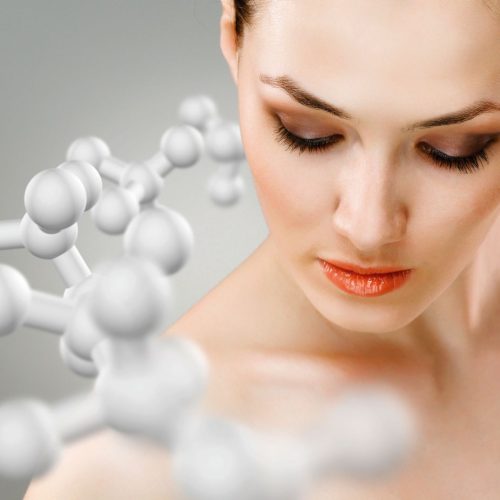Peptides are short chains of amino acids that naturally exist in the human body and play essential roles in various biological functions, including hormone regulation, immune response, and tissue repair.
These amino acid chains are linked by peptide bonds, forming unique sequences that determine their specific effects on the body. Each peptide’s structure influences its role in physiological processes which is why it is important that you obtain lab tested peptides.
Given the significant benefits peptides provide when naturally produced, peptide therapy has been gaining popularity as both an independent wellness treatment and a potential alternative to hormone replacement therapy (HRT).
Signs You May Benefit from Peptides
Every individual’s body functions differently, making it challenging to pinpoint a definitive list of symptoms that indicate a need for peptide therapy. However, peptides are commonly used to address mild to moderate hormone imbalances, which become more prevalent with age.
Because the symptoms of hormone imbalances can overlap with various other conditions, identifying the root cause often requires blood or genetic testing. That said, some common signs of hormonal imbalances include:
Hormone Imbalance in Women
- Mood swings
- Hot flashes
- Irregular menstruation
- Infertility
- Abdominal or lower back pain during menstruation
- Low libido
- Insomnia
- Unexplained weight gain or weight loss
- Brittle bones
Hormone Imbalance in Men
- Low libido
- Erectile dysfunction
- Loss of muscle mass
- Hair thinning or reduced hair growth
- Tenderness in the chest
Whether peptides can help alleviate these symptoms depends on how current hormone levels compare to optimal ranges, which can only be determined through proper testing. Seeking guidance from a hormone specialist and undergoing the necessary tests is crucial for finding the most effective solution.
How to Test for Hormone Imbalances
Hormone imbalances are typically identified through comprehensive blood tests, which measure specific hormone levels and determine whether they fall outside the optimal range. In addition to diagnosing hormonal issues, these tests can detect other potential causes of symptoms, such as nutrient deficiencies or inefficiencies in other bodily functions.
Certain essential nutrients, including magnesium, B vitamins, and vitamin D3, play a key role in natural hormone production. Genetic testing can help determine if there are variations that make it difficult for the body to process these nutrients effectively, impacting hormone regulation.
How Do Peptides Differ from Hormone Replacement Therapy?
Peptides play a crucial role in stimulating and regulating hormone production, making them a natural alternative to hormone replacement therapy for some individuals.
Hormone replacement therapy (HRT) involves the introduction of synthetic hormones to restore balance and support normal bodily functions. In contrast, peptides encourage the body to produce hormones naturally, reducing the reliance on synthetic alternatives.
While research is ongoing for both hormone therapy and peptide therapy, peptides are generally considered a safer option, as they have shown fewer side effects in studies compared to traditional HRT.
Types of Peptides and Their Benefits
While peptides offer an alternative to hormone replacement therapy for managing hormone imbalances, they can also be used to support a variety of wellness goals, including weight loss, muscle recovery, sleep improvement, and sexual wellness.
Peptides for Weight Loss
Losing weight is a complex process, as each person responds differently to treatments and therapies. Peptides can be a valuable tool in combination with other weight loss strategies to help accelerate fat loss.
Two commonly used peptides for weight management are Semaglutide and Tirzepatide. These peptides work by mimicking the GLP-1 hormone, which is naturally released in response to food intake. This hormone plays a role in insulin production, blood sugar regulation, and appetite suppression.
Semaglutide was approved as an anti-obesity medication in 2021 due to its effectiveness in reducing appetite and promoting feelings of fullness. Tirzepatide works similarly and, when combined with Semaglutide, has been shown in clinical studies to enhance weight loss when administered regularly.
Peptides for Strength & Recovery
For those looking to build strength and recover more efficiently from workouts, the CJC-1295 + Ipamorelin peptide combination supports muscle growth, fat loss, and overall physical wellness.
- CJC-1295 is a peptide that stimulates protein synthesis, helping the body gain muscle while reducing fat. Additional benefits include increased energy, lean body mass, and improved bone density, all of which contribute to enhanced strength and endurance.
- Ipamorelin complements CJC-1295 by boosting plasma growth hormone levels, promoting cellular repair, collagen production, and improved sleep quality, all of which aid in post-workout recovery.
Peptides for Healing & Inflammation
For those dealing with chronic pain, inflammation, or injury, BPC-157 is known for its ability to promote tissue repair, reduce inflammation, and accelerate recovery.
Research suggests that BPC-157 can enhance healing in the nervous system, tendons, and muscles while improving circulation to aid in wound healing. It also supports joint health and has been used to help manage gastrointestinal conditions such as IBS.
Peptides for Sleep & Relaxation
Quality sleep is essential for overall health, and Delta Sleep Inducing Peptide (DSIP) has been shown to promote deep and restorative sleep while regulating the body’s circadian rhythm.
This peptide binds to receptors in the brain associated with relaxation, making it easier to fall asleep and stay asleep. Additionally, DSIP may help reduce anxiety, depression, and fatigue, while improving memory and alertness.
Peptides for Sexual Wellness
For those looking to improve libido and overall sexual wellness, PT-141 has been found to enhance sexual arousal, performance, and satisfaction.
- In men, PT-141 may assist with erectile dysfunction.
- In women, it stimulates dopamine production, which can naturally enhance libido and sexual desire.
- It has been FDA-approved for treating female sexual dysfunction, and research continues to explore its full potential for both men and women.
How Peptides Are Administered
Peptide therapy requires comprehensive testing and consultation to determine the most effective approach for an individual’s goals and needs.
Once prescribed, peptides are typically administered through subcutaneous, intramuscular, or intravenous injections, though some peptides are available in oral forms. A healthcare provider will determine the best method of administration to maximize effectiveness and achieve desired results.




